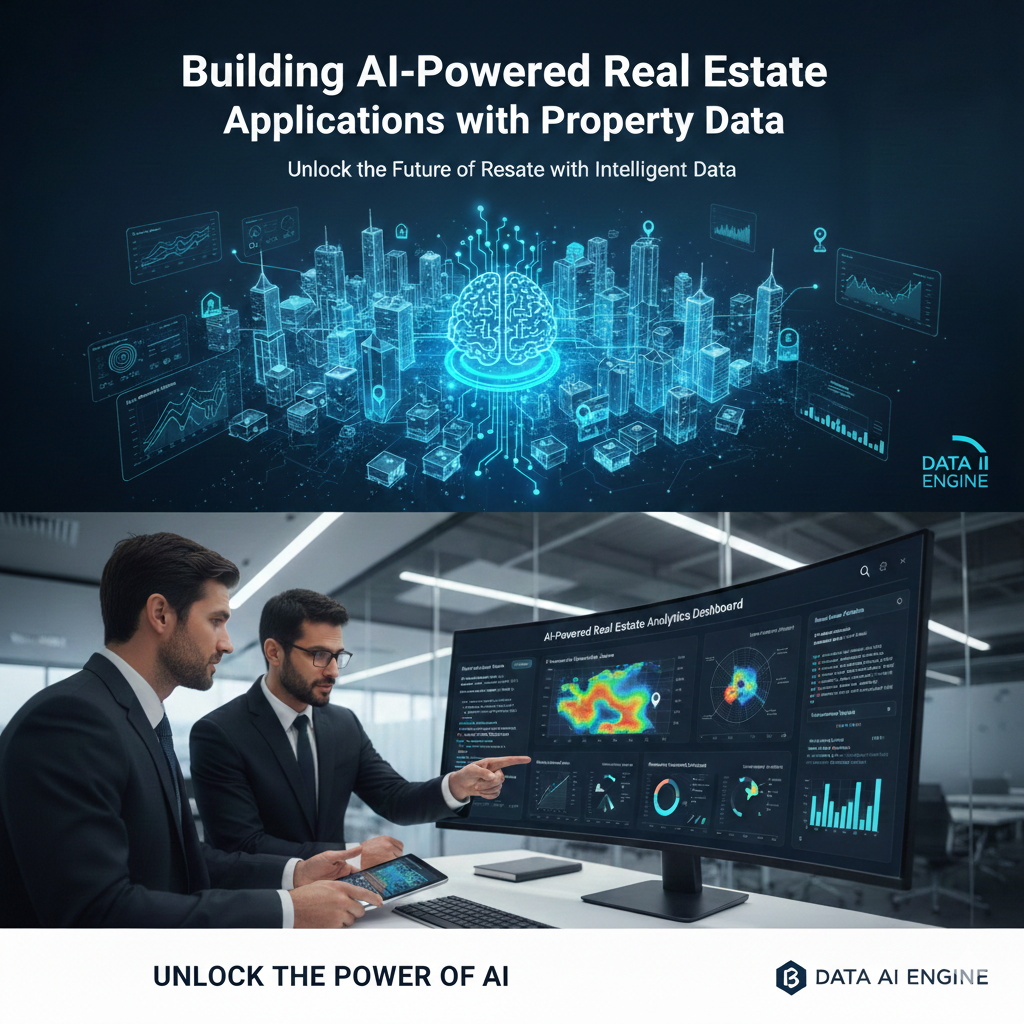The real estate industry is undergoing a seismic shift, driven by the rise of PropTech (property technology) and the rapid evolution of generative AI (Gen AI). These advancements are not just incremental improvements – they are fundamentally reshaping how buildings are designed, managed, and experienced. From creating smarter, tech-driven spaces to offering unparalleled user experiences, the convergence of technology and real estate has unlocked new opportunities and challenges.
This article explores the transformative power of PropTech and Gen AI, based on a detailed discussion with experts in the industry, and provides actionable insights for professionals navigating this rapidly changing landscape.
The Evolution of PropTech: From Niche Technology to Necessity
In the mid-1990s, as the internet was just beginning to take off, early adopters in real estate saw the potential for digital platforms to streamline property management and transactions. Fast forward to today, PropTech has become a critical component of modern real estate practices.
While there was significant hype around PropTech seven to eight years ago, the guest in the discussion emphasized that the industry has entered a more mature, impactful phase. The office market, in particular, has shifted toward creating tech-enabled spaces that prioritize user experience.
Why Technology Is Now Unavoidable
Tech adoption in real estate is no longer optional – it’s a requirement. The only way to make office spaces investable in today’s market is by incorporating sophisticated technologies that deliver superior user experiences. This includes:
- Smart building systems to optimize energy use and climate control
- Data-driven decision-making to understand tenant and employee needs
- Flexible, user-focused spaces that cater to modern demands for hybrid work environments
The pressure is on for real estate firms to embrace this shift. Consumer expectations have evolved, and firms that fail to adapt risk losing relevance in an increasingly competitive market.
Breaking Down Silos: The Key to Unlocking PropTech’s Full Potential
One of the biggest hurdles in the PropTech industry is the pervasive siloed approach within large real estate firms. Despite their vast resources, these organizations struggle to integrate their tech investments across different divisions and regions.
For example, large firms often acquire innovative startups but fail to deploy their solutions effectively due to organizational fragmentation. Decision-making is hampered by internal silos and misaligned incentives, making it difficult to achieve the full potential of new technologies.
Toward an Ecosystem Approach
The solution lies in creating unified platforms that bring disparate systems together. Building owners and operators need to:
- Orchestrate diverse tools: Integrate multiple tech solutions into a single cohesive system, eliminating redundancy.
- Leverage holistic data: Combine first, second, and third-party data for a comprehensive view of tenant and building performance.
- Foster trust and transparency: Clearly communicate how data will be used and protected to encourage tenant cooperation.
By turning silos into ecosystems, companies can unlock new sources of value and deliver seamless experiences for users.
The Role of Gen AI: A Game-Changer for Real Estate
Generative AI is no longer a futuristic concept – it is already transforming industries, including real estate. However, despite the hype, the full potential of Gen AI remains untapped. A recent study from MIT and NBER revealed that only 5% of Gen AI projects lead to significant revenue growth, while 95% fail due to poor implementation and misalignment with business needs.
Why Most Gen AI Projects Fail
The high failure rate can be attributed to:
- Lack of organizational readiness: Many companies attempt to implement AI without first addressing underlying inefficiencies in their workflows.
- Misaligned incentives: In some cases, leaders are more focused on short-term cost savings (e.g., reducing headcount) than long-term value creation.
- Fragmented approaches: Companies invest in isolated AI tools rather than adopting integrated solutions.
Gen AI’s Transformative Potential
When used effectively, Gen AI has the power to revolutionize real estate practices. For instance:
- Efficiency gains: Generative AI can automate routine processes, allowing professionals to focus on higher-value tasks.
- Personalized tenant experiences: AI can analyze user preferences to create tailored environments in commercial buildings.
- Creative problem-solving: Tools like ChatGPT enable architects and designers to quickly generate multiple design concepts, fostering innovation.
However, the key to success lies in adopting a strategic approach. Real estate professionals must learn how to use AI effectively, particularly in areas like prompt engineering and data orchestration.
Space as a Service: Redefining the Value of Real Estate
The concept of "Space as a Service" (SaaS) has gained significant traction in recent years. Coined over a decade ago, this idea shifts the focus from selling physical spaces to delivering experiences that meet the needs of tenants and employees.
From Long Leases to Flexible Experiences
Traditionally, commercial real estate was driven by long-term leases designed for investors. Buildings were treated as financial assets, with little regard for the end user. Today, this model is no longer sufficient.
To attract and retain tenants, building owners must prioritize:
- Flexibility: Offering adaptable spaces that cater to hybrid work models.
- User experience: Designing environments that enhance productivity, well-being, and collaboration.
- Community-building: Creating spaces that foster human connection and engagement.
This shift has profound implications for how real estate assets are valued and managed. Instead of focusing solely on financial metrics, the industry is moving toward a more customer-centric approach.
The Role of Mixed-Use Developments
Mixed-use developments, which combine residential, commercial, and recreational spaces, are emerging as a popular solution. These projects create self-contained "mini cities" that offer everything tenants need within a walkable radius. By taking a holistic view of urban planning, mixed-use developments provide:
- Convenient access to amenities
- Enhanced sustainability through reduced commutes
- Vibrant, community-focused environments
The Future of Real Estate: Opportunities and Risks
As the real estate industry continues to evolve, it faces both unprecedented opportunities and significant risks.
Emerging Opportunities
- Startup innovation: Smaller, agile companies are leveraging technology to disrupt traditional real estate practices.
- Human-centric design: There is growing demand for spaces that prioritize well-being over technology.
- Climate-resilient properties: Investors are increasingly focusing on buildings that can withstand environmental challenges.
Potential Risks
- Job displacement: Gen AI could reduce the need for junior roles, fundamentally altering workforce dynamics.
- Uninsurable assets: Climate change may render some properties uninsurable, impacting their value.
- Failure to adapt: Companies that resist change risk being outpaced by more agile competitors.
To thrive in this environment, real estate professionals must embrace innovation, prioritize sustainability, and adopt a forward-thinking mindset.
Key Takeaways
- Tech-enabled spaces are now a necessity: To remain competitive, real estate firms must invest in technology that enhances user experience.
- Silos are holding the industry back: Companies need to adopt integrated platforms that unify data and workflows.
- Generative AI is a double-edged sword: While it offers immense potential, poor implementation can lead to failure.
- Space as a Service is the future: The focus is shifting from financial assets to creating spaces that meet tenant needs.
- Mixed-use developments are on the rise: These "mini cities" offer a sustainable, human-centric approach to urban planning.
- The industry must prepare for change: From climate risks to workforce shifts, adaptability will be key to long-term success.
In a world transformed by PropTech and Gen AI, the real estate industry has a unique opportunity to redefine itself. By embracing innovation, fostering collaboration, and prioritizing human experiences, professionals can navigate this exciting new era with confidence. As one expert aptly put it, "We have all these tools and all these problems to solve. Let’s use them to build a better future."
Source: "066: BEYOND SILOS: PropTech, Gen AI & the Future of Real Estate (AUDIO)" – Charles Reed Anderson, YouTube, Aug 25, 2025 – https://www.youtube.com/watch?v=CQVCin6UTnM
Use: Embedded for reference. Brief quotes used for commentary/review.



